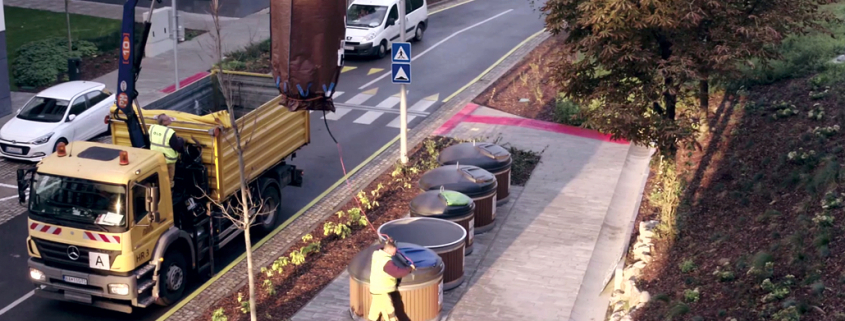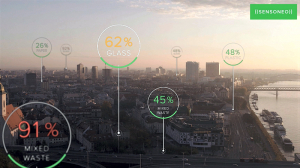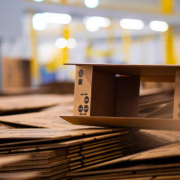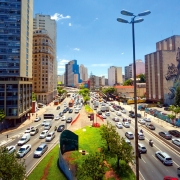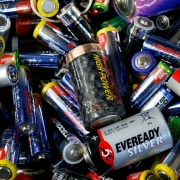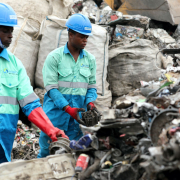Prague to Pilot Dynamic Waste Collection
The city of Prague, capital of the Czech republic with over 1.3 million inhabitants, will pilot dynamic waste collection via automated collection routes based on the Collection Efficiency Analysis’s result.
In December last year, Sensoneo, a global provider of smart waste management solutions, has announced the first European capital with whom they will partner on a large-scale deployment using their waste management solution. As of spring of 2021, the Czech city will pilot collecting waste via automated routes to dynamically respond to changes in waste production and the city’s infrastructure. According to the information, dynamic waste collection is part of a project focused on demonstrating environmental and economic benefits, which result from large-scale deployment of the Sensoneo solution. “Given the scope and the tools applied (over 130.000 bins and 150 collection vehicles), it is an ultimate and revolutionary model example at a global level,” the company emphasized. “The project is co-funded by the Horizon2020 program of the European Innovation Council.”
Thanks to efficient collection planning, the city of Prague could systematically decrease the environmental impact related to the waste collection process, maximize the efficiency of the currently available vehicles (trucks) and employ flexibility in the case of unanticipated changes. „The ongoing pandemic of COVID-19 is one such example, as it is profoundly changing traditional waste generation patterns and standard collection frequencies, and the current routes are not able to flexibly cope with these changes.“
As reported, the project includes the following procedures:
- Collection Efficiency Analysis (AS-IS ANALYSIS) for all waste commodities using Sensoneo’s method, based on processing all currently available data related to containers, vehicles and realized routes. In this way, weak points and opportunities for savings and improvement of the service quality were identified;
- Set-up of the new cycling routes and frequencies (TO-BE ANALYSIS) to increase the continuous efficiency and quality of service, combines the shortest possible routes, on-time collection, and maximum possible utilization of vehicle capacity with the long-term goal to reduce the number of vehicles used during waste collection;
- Collecting waste via automated routes (flexibly reflecting daily specific requirements) using Sensoneo’s navigation. That would facilitate the employment of drivers without prior driving experience in particular districts or particular routes;
- Final evaluation – showcases savings (time, cost, fuel, emissions) with a BEFORE-AFTER comparison.
Along with the above, the project also includes the realtime monitoring of 550 containers for electronic waste with Sensoneo sensors to optimize waste collection, ensure sufficient free capacity for citizens and thus support the recycling of this commodity, the company assured. The operation part of the project would take one year.
(Published in GLOBAL RECYCLING Magazine 1/2021, Page 20, Photo: Sensoneo)

